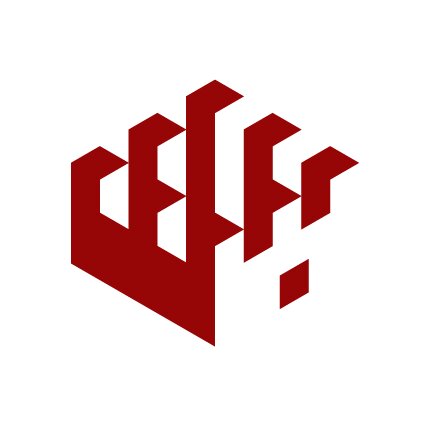Best Debt & Collection Lawyers in Chelyabinsk
Share your needs with us, get contacted by law firms.
Free. Takes 2 min.
List of the best lawyers in Chelyabinsk, Russia
About Debt & Collection Law in Chelyabinsk, Russia
Debt and collection law in Chelyabinsk, Russia, is a system of legal rules that govern the procedures and rights for both creditors and debtors. These laws determine how debts can be collected, what actions are legally permitted, and what protection is provided to individuals and businesses facing debt recovery actions. Debt collection can involve private agreements, bank loans, utility payments, or business transactions. The legal framework aims to balance the creditor’s right to recover money owed with the debtor’s right to fair treatment under the law. Both voluntary and enforced collection are common practices, often involving courts, bailiffs, and sometimes professional collection agencies.
Why You May Need a Lawyer
Debt and collection matters can be complex and stressful. Legal assistance can help you understand your rights and obligations, and ensure that proper procedures are followed. Common situations where people require a lawyer’s help include:
- Receiving threats or harassment from creditors or collection agencies
- Facing court action for unpaid debts
- Disputing the amount of debt claimed or the legitimacy of the debt
- Negotiating repayment schedules or debt settlements
- Challenging illegal or unfair collection practices
- Protecting assets from seizure or garnishment
- Dealing with bankruptcies and insolvency
- Pursuing the recovery of debts owed to you or your business
A qualified lawyer will help you navigate these issues, safeguard your interests, and pursue the best possible outcome.
Local Laws Overview
Russian debt and collection law, including that in Chelyabinsk, operates mainly under the Civil Code of the Russian Federation and the Law on Enforcement Proceedings. Key aspects relevant to Chelyabinsk include:
- Collection must comply with official legal procedures. Self-enforcement or harassment is prohibited.
- Creditors may file a claim in court for debt recovery if negotiation fails. Courts can issue a writ of execution for debt enforcement.
- Court bailiffs handle enforcement, including asset seizure, wage garnishment, and other legal measures.
- The law sets timelines for enforcement proceedings and debtor notifications.
- Collection agencies are regulated and must operate within legal guidelines regarding communication, handling of personal data, and methods of interaction.
- Debtors in a difficult financial situation may apply for insolvency proceedings (bankruptcy) following specific legal requirements.
- There are specific protections for consumer debtors, including limits on contact hours and methods that can be used by collectors.
- The statute of limitations for most debt collection claims is three years, but certain cases may have different timeframes.
Understanding these laws is essential for both debtors and creditors to avoid potential legal violations and protect their rights.
Frequently Asked Questions
Is it legal for a collection agency to contact me directly in Chelyabinsk?
Yes, but collection agencies must adhere to strict guidelines. They cannot threaten or harass you, must respect privacy laws, and can only contact you during allowed times.
What should I do if I believe a debt claimed is not mine or is incorrect?
You should immediately inform the creditor or collection agency in writing and provide evidence if possible. Consulting a lawyer early can help dispute fraudulent or mistaken claims.
What protections do I have against harassment by collectors in Chelyabinsk?
Russian law forbids collectors from using threats, force, deception, or contacting you at work against your wishes. Repeated harassment can be reported to the Federal Service for Supervision of Communications, Information Technology and Mass Media (Roskomnadzor) and the police.
How are debts enforced in Chelyabinsk if I refuse to pay?
Creditors may take the dispute to court. If the court rules in their favor, official bailiffs will oversee enforcement, which can include wage garnishment or seizure of assets.
Can my bank account or salary be seized for unpaid debts?
Yes, if a court judgment is issued, bailiffs may freeze bank accounts and garnish a legal portion of your salary to recover the debt.
How can I negotiate a settlement or repayment plan?
You can initiate negotiations directly with your creditor or via a lawyer. Put all agreements in writing and ensure both sides sign. A lawyer can help ensure fair terms.
What is the process for declaring personal bankruptcy in Chelyabinsk?
Individuals who owe more than 500,000 rubles and cannot pay debts for three months may apply for bankruptcy. The process requires court involvement and legal documentation. Consulting a lawyer is strongly recommended.
Is there a time limit for creditors to collect a debt from me?
The standard statute of limitations is three years from when the creditor became aware of the violation of their rights. After this period, claims may be legally unenforceable.
Can a lawyer reduce or cancel my debt?
A lawyer cannot unilaterally cancel a debt but can often help negotiate a reduction, challenge improper charges, or advocate for debt restructuring, especially if laws have been violated by the creditor.
What should I bring when meeting a debt lawyer in Chelyabinsk?
Bring any debt contracts, court documents, correspondence with creditors or collectors, payment records, and ID documents. These help your lawyer assess your situation accurately.
Additional Resources
If you need advice or assistance regarding debt and collection matters in Chelyabinsk, consider reaching out to:
- Federal Bailiff Service (FSSP) Chelyabinsk Branch
- Roskomnadzor for complaints on illegal collection practices
- Chelyabinsk Regional Bar Associations for lawyer referrals
- Consumer Rights Protection organizations
- Local court offices for guidance on legal procedures
- Online legal advice platforms specializing in Russian law
Next Steps
If you are facing debt collection or need to recover a debt in Chelyabinsk, consider the following steps:
- Gather all relevant documents and correspondence related to your debt situation.
- Consider discussing your case with a qualified debt lawyer in Chelyabinsk to understand your rights and obligations.
- If contacted by a collection agency or served with legal papers, respond promptly and formally to avoid escalation.
- Negotiate with creditors, if possible, for more favorable repayment terms. Document all agreements in writing.
- Report any harassment or illegal actions by collectors to the appropriate authorities.
- If you are unable to pay your debts, ask a lawyer about possible insolvency or bankruptcy procedures.
- Follow court and bailiff instructions carefully if enforcement proceedings begin.
Legal matters involving debt and collection can be complex. Securing professional legal advice early can help protect your interests and give you clarity about the most effective way forward.
Lawzana helps you find the best lawyers and law firms in Chelyabinsk through a curated and pre-screened list of qualified legal professionals. Our platform offers rankings and detailed profiles of attorneys and law firms, allowing you to compare based on practice areas, including Debt & Collection, experience, and client feedback.
Each profile includes a description of the firm's areas of practice, client reviews, team members and partners, year of establishment, spoken languages, office locations, contact information, social media presence, and any published articles or resources. Most firms on our platform speak English and are experienced in both local and international legal matters.
Get a quote from top-rated law firms in Chelyabinsk, Russia — quickly, securely, and without unnecessary hassle.
Disclaimer:
The information provided on this page is for general informational purposes only and does not constitute legal advice. While we strive to ensure the accuracy and relevance of the content, legal information may change over time, and interpretations of the law can vary. You should always consult with a qualified legal professional for advice specific to your situation.
We disclaim all liability for actions taken or not taken based on the content of this page. If you believe any information is incorrect or outdated, please contact us, and we will review and update it where appropriate.









